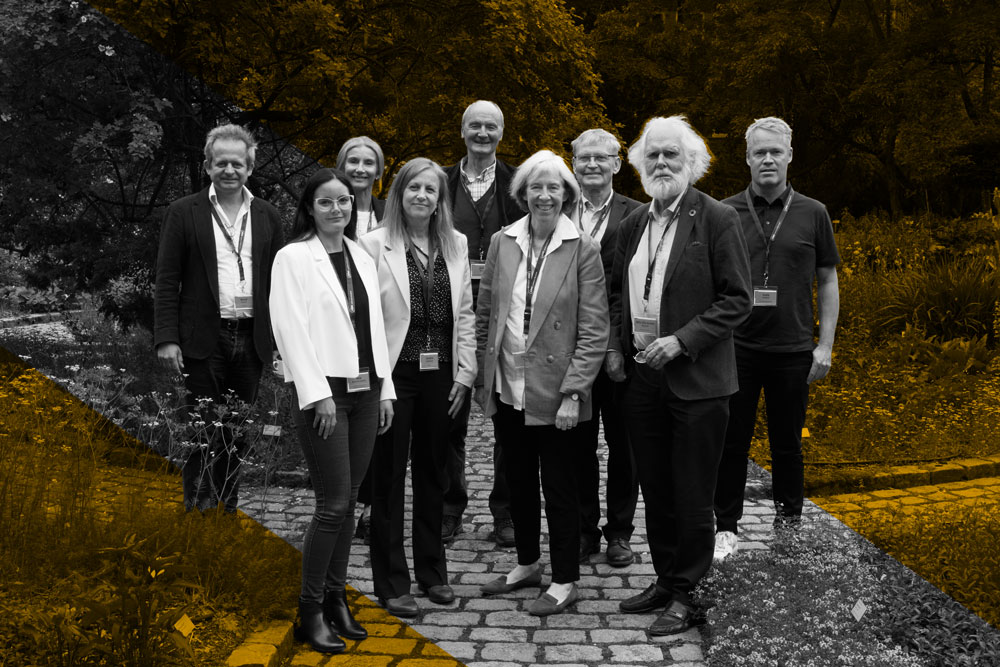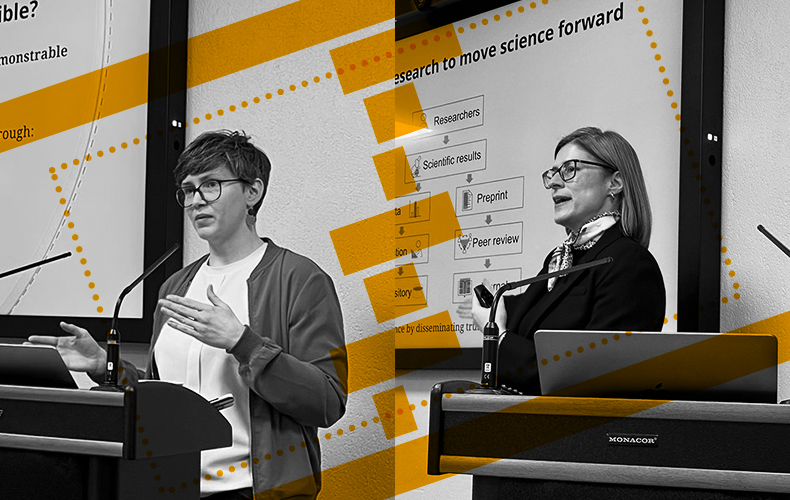18 June 2024 – On June 13, the University of Oslo hosted an event celebrating the 60th anniversary of EMBO. Co-organized by EMBO Members Nils Christian Stenseth and Erik Boye from the University of Oslo, this celebration aimed to raise awareness of EMBO within the Norwegian scientific community. EMBO funding opportunities, Open Science and publishing initiatives were presented and discussed. The event also showcased the significant research conducted by EMBO Members and awardees, providing a platform for exchange and networking. It encouraged Norwegian researchers to make use of the opportunities offered by the EMBO schemes to advance their careers by being exposed to international research and networks.
EMBO Members Fiona Watt, Director of EMBO, Nils Christian Stenseth from the University of Olso and Calle Heldin from Uppsala University in Sweden presented their research. Niels Mailand, a former EMBO Young Investigator awardee based in Denmark, shared his research journey, highlighting the programme’s contribution to his career. He emphasized how the programme provided international visibility, facilitated recruitment opportunities, fostered an inspiring network of young PIs across various disciplines, and offered excellent PhD courses and sectoral meetings.
EMBO Postdoctoral Fellow Ana Belen de Landeta presented her research on the associations between olfactory and spatial memory in the mouse hippocampus. Thanks to her EMBO Fellowship, she was able to follow her passion for memory studies, moving from Argentina to join Clifford George Kentros’ group at the Kavli Institute of Systems Neuroscience in Trondheim. The fellowship allowed her to relocate with her family to Norway, illustrating the personal and professional benefits of EMBO support.
Bernd Pulverer, Head of EMBO Scientific Publications, explained the importance of Open Science and illustrated EMBO Press initiatives to support it, such as the SourceData platform which describes the contents of figures from scientific articles in a standardized, machine-readable format, allowing articles to be searched and interlinked using their data content. He also discussed the Review Commons platform which provides journal-independent peer review of preprints. Pulverer illustrated the potential applications of Artificial Intelligence in scientific publishing, such as support for editors in diversifying and expanding the reviewers’ pool, improving the language used in reviewers’ reports and curating data and metadata at scale. He also noted the challenges posed by AI in creating fake content and data, stressing the need to build a trust-based system in science and rethink the research assessment system.
The day concluded with a round table discussion focused on how Norway’s research system can motivate young researchers to take advantage of EMBO funding opportunities and join the international EMBO networks. Suggestions included mobilizing Norwegian EMBO Members to make the EMBO initiatives known among younger researchers, emphasizing the importance of international mobility in national funding schemes and in university hiring and promotion processes, and encouraging EMBO to more actively promote its programmes in Norway. Line M Grønning-Wang, special adviser for the Research Council of Norway and EMBC Delegate, said that the Research Council will highlight the EMBO funding opportunities prominently among young Norwegian researchers.
At a working dinner, participants continued to engage in lively discussions. They explored themes such as the necessity of interdisciplinary collaboration, the importance of inspiring young people to pursue life science and the varied approaches of European governments to the Covid pandemic. “It was both a very inspiring and fruitful meeting between EMBO and the biological scientists of Norway, highlighting the broad importance of the life sciences,” said Nils Christian Stenseth. “The conference underlined the potential of the EMBO contributions to Norwegian science and vice versa,” said Eric Boye.



